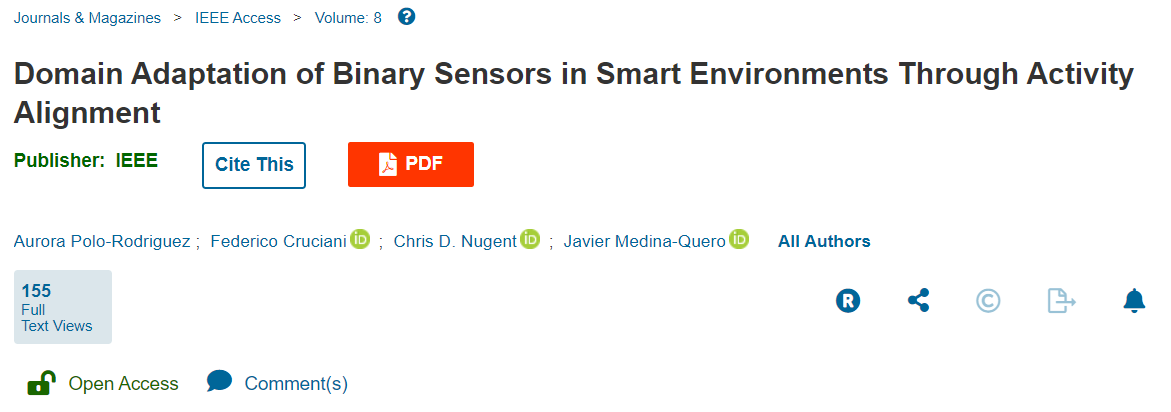
21 Dec New Pharaon publication: Domain Adaptation of Binary Sensors in Smart Environments Through Activity Alignment
Activity Recognition is an active research topic focused on detecting human actions and behaviours in smart environments. In most cases, the use of data-driven models aim to relate data from sensors to an activity through a model developed by a supervised approach. In this work, we focus on the goal of domain adaptation between smart environments, which has required a novel approach to relate the concepts of domain adaptation using binary sensor and learning from daily imbalanced data. In this work, the sensor activation from a given context is translated to a different one, based on the temporal alignment from human activities. The domain adaptation of binary sensor is accomplished through a three step procedure: i) clustering of sensor activation, ii) activity based alignment of sensor data between the two environments, iii) an ensemble of classifiers used to mine a mapping function, translating sensor data between the two environments. The proposed method was evaluated over a publicly available dataset, and obtained preliminary results which were encouraging with an F1-Score of 87%.
Access the full article (click here)
A. Polo-Rodriguez, F. Cruciani, C. D. Nugent and J. Medina-Quero, “Domain Adaptation of Binary Sensors in Smart Environments Through Activity Alignment,” in IEEE Access, vol. 8, pp. 228804-228817, 2020, doi: 10.1109/ACCESS.2020.3046181.

